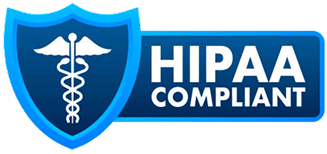Managing a Cough Before Surgery: Essential Tips for a Safe Procedure


A cough can often be a mere annoyance, but when it comes to surgery, its implications can be far more serious. As you prepare for your upcoming procedure, managing your cough before surgery is crucial to ensure a safe and successful outcome. This comprehensive guide will help you understand the risks associated with coughing before surgery, identify the cause of your cough, communicate effectively with your surgeon and anesthesiologist, and explore tips for cough management to pave the way for a smooth surgical experience.
Key Takeaways
Understand the risks associated with coughing before surgery.
Take proactive steps to diagnose and manage your cough, such as boosting the immune system, obtaining a consultation with a specialist, and utilizing home remedies or OTC medications.
Notify your surgeon and anesthesiologist of any coughs, illnesses, or other symptoms prior to surgery for a safe and successful procedure.
Why a Cough Before Surgery Puts Your Health at Risk

Coughing before surgery can impose a strain on the body, potentially resulting in internal pain and further complications with the surgical wound and sutures. Recognizing the risks of coughing before surgery is key. These risks include anesthesia-related issues, respiratory complications, and a prolonged recovery period.
In some cases, the severity and timing of an illness, such as a mild cold or flu, may affect the scheduled surgery. For instance, anesthesia is not an option when a patient has a severe sore throat, as it can exacerbate the symptom. Therefore, controlling a cough before the scheduled surgery is necessary for a secure and effective procedure.
Anesthesia Concerns
Coughing prior to surgery can lead to potential breathing difficulties, such as shortness of breath or constriction of the airways while under anesthesia. This can also affect the placement and functioning of the breathing tube during the procedure. Moreover, surgery should be postponed if the cold has not abated by the scheduled date of the procedure, if the tonsils are significantly inflamed, or if the cold is accompanied by a fever.
A mild sore throat can be made worse if saliva and moisture in the mouth and throat are reduced due to sedation, such as during general anesthesia. This is known as exacerbation. Consequently, handling any throat problems before surgery can help reduce anesthesia-related complications.
Respiratory Complications
Increased mucus production and breathing difficulties can arise due to coughing prior to surgery. In some instances, these complications might result in the decision to postpone surgery until the patient’s health improves. Coughing during surgery may result in augmented mucus production, since coughing is the body’s natural reflex to expel superfluous mucus from the respiratory system.
Coughing during surgery may also result in postoperative respiratory complications due to the irritation and inflammation it can cause in the airways. This can lead to an increase in mucus production, difficulty clearing the lungs, and a higher risk of pneumonia and other lung complications.
Moreover, coughing can exert stress on the surgical incision site, possibly resulting in pain, wound disruption, and a slower healing process.
Delayed Recovery
Coughing can have a detrimental effect on the recovery process after surgery, causing pain and discomfort. Persistent coughing during the postoperative recovery period can lead to complications such as increased risk of pulmonary complications, extended hospital stays, and increased costs.
Additionally, coughing can create tension on the surgical sutures and prolong the healing process. It‘s imperative to support the surgical wounds during abrupt movements like coughing to avoid any difficulties. So controlling and addressing a cough before surgery is necessary for appropriate healing and uninterrupted recovery process after surgeries.
Identifying the Cause of Your Cough

Identifying the cause of your cough is a key step to managing it effectively before surgery. Common causes of coughing include:
Cold symptoms
Infections
Allergies
Asthma
Chronic cough
Understanding the origin of your cough will allow you to take appropriate measures to alleviate it and ensure the success of your surgical procedure.
Various symptoms can help you differentiate between cold symptoms, infections, allergies, and asthma. For example, asthma symptoms may include frequent coughing, shortness of breath, chest tightness or pain, and wheezing, whereas common cold symptoms may comprise fever, chills, muscle aches, and sore throat. Identifying the root of your cough allows you to take the appropriate measures to control it, minimizing the risk of surgery complications.
Cold Symptoms vs. Infection
Differentiating between cold symptoms and infections is important as it helps determine their potential impact on your surgery. Common cold symptoms include a runny or stuffy nose, sore or scratchy throat, cough, sneezing, and feeling generally unwell. On the other hand, respiratory infections typically present with symptoms such as coughing, runny nose, sneezing, throat pain, fever, earache, excess mucus, sore throat, headache, hoarse voice, and fatigue.
If cold symptoms such as a runny nose, cough, sinus infection, or sore throat are present, it is advisable to postpone the surgery. Postponing and rescheduling the surgical procedure for a later date, once the symptoms have lessened, is the suggested action to guarantee a safe and successful surgery.
Allergies and Asthma
Allergies and asthma can also play a role in causing coughing and impacting your surgical procedure. Allergies may be associated with coughing due to postnasal drip and throat irritation, potentially resulting in a nagging cough. Treatment of an allergy cough may be achieved with the use of:
Over-the-counter antihistamines
Expectorants
Decongestants
Nasal irrigation
Steam inhalation
Asthma symptoms, on the other hand, can be more severe and may necessitate immediate medical attention. The potential risks associated with undergoing surgery while having allergies or asthma include:
bronchospasm triggered by intubation
allergies to latex-based medical equipment
hypersensitivity to anesthetics
a heightened risk of respiratory complications
Managing asthma and allergies before surgery is necessary to minimize these risks.
Chronic Cough
Chronic cough, defined as a prolonged cough that persists for greater than 8 weeks, can also impact your surgical procedure. A chronic cough can:
Increase the potential for complications during and after the procedure
Impede the administration of anesthesia and ventilation during the procedure
Cause discomfort and pain for the patient post-surgery
Identifying the root of a chronic cough is key for its control and treatment. The underlying causes of a chronic cough can include:
Asthma
Postnasal drip
Acid reflux
Pertussis (whooping cough)
Previously undiagnosed upper airway tumor
By identifying and treating the underlying cause of a chronic cough, you can reduce its impact on your surgery and ensure a smoother recovery process.
Communicating with Your Surgeon About Your Cough

Discussing your cough with your surgeon is a necessary part of surgery preparation. Informing your surgeon about any respiratory symptoms before surgery is important, because a significant cough may require the surgery to be rescheduled for a secure and successful result. By discussing your cough with your surgeon, you can determine the best course of action and minimize the risk of complications during and after surgery.
Your surgeon and/or anesthesiologist will take into consideration various factors when deciding whether to postpone your surgery due to a cough or illness. These factors include the intensity of the cough or illness, the likelihood of complications during surgery, and the potential effect on your recovery. Maintaining clear communication with your surgeon enables appropriate evaluation and control of your cough before surgery.
When to Notify Your Surgeon
It’s important to inform your surgeon of a cough or other symptoms before surgery if you have a persistent cough, a cold appearing in the weeks or days before your surgery, or any fever, vomiting, or congestion that could affect your breathing. Notifying your surgeon is paramount to ensure a secure procedure.
Neglecting to inform your surgeon about a cough before surgery could lead to anesthesia complications, issues with breathing, and a possible rescheduling of the surgery. Therefore, it is crucial to disclose any cough or illness prior to the procedure in order to ensure a safe and successful surgery.
Preoperative Evaluation
A preoperative evaluation is key in assessing the severity of your cough and deciding the optimal strategy for your surgery. This evaluation involves:
Examining the patient’s medical history
Assessing their physical condition
Identifying potential risks to ascertain their safety during and after the procedure.
The preoperative evaluation may include assessments such as:
Lung sounds
Cough tests
Pulmonary function tests and X-rays
Additional investigations like arterial blood gas analysis
By undergoing a thorough preoperative evaluation, your surgeon or medical consultant can accurately assess the severity and origin of your cough, which can assist in the decision-making process for your surgery and ensure the best possible outcome or cancel the procedure.
Tips for Managing Your Cough Before Surgery

Efficient control of your cough before surgery is important for a seamless surgical experience. This can be achieved through various methods, such as strengthening the immune system, utilizing home remedies and over-the-counter medications, and implementing lifestyle changes. By following these tips, you can alleviate your cough and reduce the risk of complications during and after surgery.
Taking proactive steps to boost your immune system can not only help manage your cough but also contribute to your overall health and well-being. It is important to remember that every individual is different, and what works for one person may not necessarily work for another. It’s important to find the most effective method to control your cough before surgery.
Boosting Your Immune System
Maintaining a strong immune system is vital in helping to fight off infections and minimize coughing. Consuming high-quality protein sources and a diet rich in nutrients such as vitamin C, beta carotene, and antioxidants can aid in maintaining a healthy immune system. Also, lowering stress levels can aid in strengthening the immune system since chronic stress can induce inflammation in the body, which can weaken the immune response.
Beyond a nutritious diet and managing stress, routine exercise can also enhance respiratory function and strengthen the muscles involved in coughing. This can assist in:
Clearing mucus and irritants from the airways
Decreasing the occurrence and intensity of coughing episodes
Enhancing overall lung capacity and efficiency
Home Remedies and Over-the-Counter Medications
Home remedies can provide natural alleviation for coughs prior to surgery. Some effective home remedies for diminishing coughing include:
Honey
Ginger
Hot drinks
Steam
Marshmallow root
Turmeric
Cough suppressants containing dextromethorphan and expectorants such as guaifenesin can help alleviate cough symptoms.
It is important for patients to consult with a healthcare professional before taking any over-the-counter medications, because some may interact with anesthesia or cause side effects. Combining home remedies with over-the-counter medications can effectively control your cough and minimize the risk of complications during surgery.
Lifestyle Changes
Adopting lifestyle changes can have a notable impact on controlling your cough before surgery. Implementing habits such as staying hydrated, using cough drops or hard candies to alleviate a dry cough, and avoiding allergens can help reduce the severity and frequency of coughing episodes.
Additionally, ceasing to smoke before surgery can have several positive effects, including:
Improving pre-surgical cough
Enhancing wound healing
Lowering the risk of pneumonia
Shortening the overall recovery time
By making these lifestyle changes, you can effectively manage your cough and pave the way for a successful surgical experience.
Precautions to Take if You're Sick Before Surgery

If you become ill before your scheduled procedure, taking the necessary precautions is critical to ensure a secure and successful surgery. These precautions include rescheduling your surgical procedures if needed and preventing the spread of infection to others. By being cautious and adopting suitable measures, you can lower the risk of complications and ensure an uninterrupted recovery process.
Notifying your surgeon and/or anesthesiologist of any illness and working closely with them to evaluate your condition and determine the best course of action is highly recommended. Along with postponing your surgery, adopting measures to prevent infection spread is vital for your well-being and that of others around you.
Rescheduling Your Surgery
Rescheduling your elective surgery may be necessary if you’re sick, or if a previously undiagnosed problem is identified, as certain illnesses can impede the performance of surgery. The decision to postpone surgery should be based on the symptoms presented and determined by your surgeon. By discussing your illness with your surgeon and anesthesiologist, you can evaluate the circumstances and ascertain if any modifications or cancellation need to be made to your surgery plan.
It is important to remember that even if your surgery date is postponed or you need to cancel surgery, this is ultimately for your benefit and safety. By allowing yourself the time to recover from your illness, you can ensure a smoother surgical experience and reduce the risk of complications.
Preventing the Spread of Infection
To avoid transmitting infection to others, it’s important to:
Maintain good hygiene
Keep a clean living environment
Refrain from sharing personal items like bedding, towels, dishes, glasses, and utensils
Wash these items thoroughly after use
Follow good food-safety practices, such as rinsing all meat, poultry, fish, fruits, and vegetables under running water before consuming them
Following these practices can help prevent the spread of infections.
Furthermore, wearing masks in communal settings, practicing regular handwashing, and frequent bathing or showering can help prevent the transmission of infections. By taking these precautions, you can protect yourself and others from the spread of infection and ensure a safe and healthy environment for everyone.
Cough Before Surgery? Here’s How to Move Forward Safely
Managing a cough before surgery is essential for a safe and successful procedure. By understanding the risks, identifying the cause of your cough, effectively communicating with your surgeon, and implementing the appropriate tips for managing your cough, you can pave the way for a smooth surgical experience. Remember, taking the necessary precautions and being proactive in your healthcare journey can make all the difference in ensuring a successful outcome.
Frequently Asked Questions
Is it OK to have surgery with a cough?
Given the severity of the symptoms, it is likely that surgery will need to be postponed if you have a sinus infection, bad cough, sore throat, or previously undiagnosed tumor. Even with mild colds such as runny nose or cough, your anesthesiologist may opt to postpone surgery and ask for a consultation from another specialist. In any case, the decision should ultimately be made in consultation with your doctor.
What should you not do 7 days before surgery?
It is important to stop taking herbal remedies, aspirin, and anti-inflammatory medications seven days prior to surgery. However, you may take Tylenol (acetaminophen) if needed for pain.
When should you not have surgery?
You should not have surgery if you have a stomach virus, a fever, an asthma attack within two weeks before the surgery, or potential significant previously undiagnosed illness.
Is it OK to have a sore throat before surgery?
Having a severe sore throat before surgery can interfere with the anesthesia process and result in postponement. If it’s a mild cold with just a runny nose, no other symptoms, and no sinus infection, it’s possible that the surgery can proceed as planned.
What are the risks associated with coughing prior to surgery?
Coughing prior to surgery can lead to anesthesia-related issues, respiratory complications with wound disruption, and a prolonged recovery period, making it an activity to be avoided.







